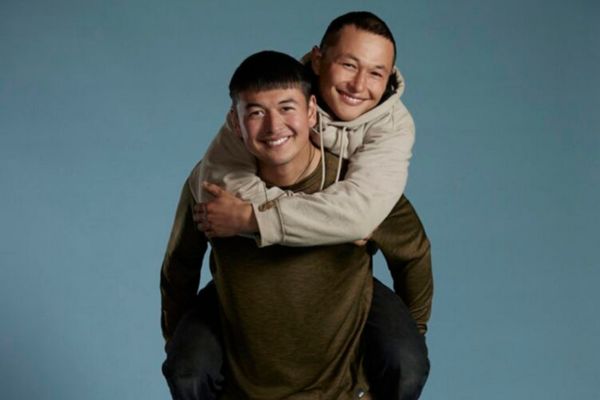
- Details
- By Kaili Berg
A pair of Inupiaq brothers from Nome, Alaska, Oliver and Wilson Hoogendorn, have won a grand prize of $500,000 in the first season of a national reality TV show series competition called “Race to Survive: Alaska."
The episode aired on USA Network on Monday, June 5. The show kicked off in April showcasing eight different two-person teams and six races that took place across uncharted terrain in Ketchikan, Kodiak, and Cordova, Alaska. The brothers competed over the summer across the 50-day survival course, traversing more than 100 miles and ultimately became the first winners of the show.
The brothers faced tremendous challenges, including terrain and wilderness, but preserved and brought the win home to Nome, where they were born and raised. Teams were only allowed to use what they could carry on their back and used their wilderness skills to make it through the race.
Oliver works as a commercial fisherman and Wilson works as a gold diver. The two were the first Native Alaskan team to summit Denali in 13 days and skied down the highest peak in North America in one day. They have honed their wilderness skills their whole lives hunting moose, seals, and whales using traditional indigenous methods.
In an interview with TV Insider, the brothers said they plan to use their winnings to give back to the Nome community — providing lumber, uniforms for the cross-country team, as well as building houses and donating to a food bank.
More Stories Like This
Watermark Art Center to Host “Minwaajimowinan — Good Stories” ExhibitionMuseums Alaska Awards More Than $200,000 to 12 Cultural Organizations Statewide
Zuni Youth Enrichment Project Takes Top Emerging Artist Apprentices to Phoenix for Artistic Exploration and Cultural Immersion
From Dishwasher to Award-Winning Chef: Laguna Pueblo's Josh Aragon Serves Up Albuquerque's Best Green Chile Stew
Rob Reiner's Final Work as Producer Appears to Address MMIP Crisis
Help us defend tribal sovereignty.
At Native News Online, our mission is rooted in telling the stories that strengthen sovereignty and uplift Indigenous voices — not just at year’s end, but every single day.
Because of your generosity last year, we were able to keep our reporters on the ground in tribal communities, at national gatherings and in the halls of Congress — covering the issues that matter most to Indian Country: sovereignty, culture, education, health and economic opportunity.
That support sustained us through a tough year in 2025. Now, as we look to the year ahead, we need your help right now to ensure warrior journalism remains strong — reporting that defends tribal sovereignty, amplifies Native truth, and holds power accountable.
 The stakes couldn't be higher. Your support keeps Native voices heard, Native stories told and Native sovereignty defended.
The stakes couldn't be higher. Your support keeps Native voices heard, Native stories told and Native sovereignty defended.
Stand with Warrior Journalism today.
Levi Rickert (Potawatomi), Editor & Publisher


